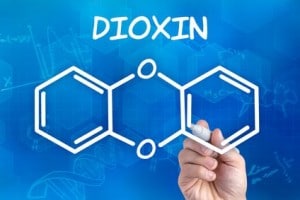If you are a veteran of the Korean War or Vietnam era, chances are you have heard of Agent Orange VA claims. But have you heard of claims for exposure to rainbow herbicides?
What you may not know is that Agent Orange was only one of the many toxins used in Vietnam and elsewhere. Since Agent Orange was the most widely used herbicide it is the one that has become the catch-all term. But, there is a good chance that the actual chemical compound a veteran was exposed to was another type of herbicide.

Agent Orange Just One of the Rainbow Herbicides
Although tactical herbicides were transported, stored, and used at U.S. military installations around the world, here are some statistics about Vietnam to give you an idea of how big this problem really is. Various herbicides were sprayed over 4.5 million acres of land in Vietnam from 1961-1970. The total estimate is about 19 million gallons. The herbicides included:
- Agent Green: used pre-1963. Over 8,000 gallons used
- Agent Pink: used pre-1964. 122,792 gallons
- Agent Purple: used from 1961–65. 145,000 gallons
- Agent Blue: used from 1962–71. 2,166,656 gallons used
- Agent White: used from 1965 to 197 or 71. 5,239,853 gallons used
- Agent Orange or Herbicide Orange: used 1965–70
- Agent Orange II: used after 1968.
- Agent Orange III
- Enhanced Agent Orange, Orange Plus, or Super Orange (SO)
11,712,860 gallons of Orange (all versions) used from 1965 to 1970.
The names of each agent came from the color of the stripe on the 55-gallon drums used to store the chemicals.
Agent Orange and All Rainbow Herbicides are Similar Chemical Compounds
Agent Orange is a combination of the chemicals n-butyl ester 2, 4-D and n-butyl ester 2,4,5-T. The rest of the rainbow herbicides are some combination of these two chemicals or variants. Without getting too technical, all of these agents contain dioxin and dioxin-like compounds. Some, such as Agent Pink and Agent Green, had twice as much dioxin as Agent Orange.
Rainbow Herbicides and their Effects on Veterans
Because Agent Orange and the other rainbow herbicides all contain dioxin or dioxin-like compounds, their health effects are similar. Remember, all of these had defoliating effects on plants, meaning it caused them to drop their leaves.
Similarly, they all have similar effects on veterans who were exposed. Agent Orange and the other rainbow herbicides can cause various cancers, heart disease, diabetes, Parkinson’s disease, ALS, and a host of other diseases and disorders. The scientific community is still learning of the harmful effects of these toxins.
VA Legal Presumption of Exposure Applies to All Rainbow Herbicides
Sometimes I hear from veterans who know they were exposed to one of the lesser known herbicides, such as Agent Blue or White. They are not sure if they qualify for “Agent Orange VA benefits.” The good news is that these veterans are treated the same.
Because the tactical use of the various herbicides was so widespread and often overlapped in time and place, the VA applies the same legal presumption regarding exposure to all of the herbicides. If veterans served in Vietnam with “boots on the ground,” they qualify for the VA’s presumption of exposure to tactical herbicides. Likewise, if they served in one of the other areas covered by the presumption exposure, the presumption applies regardless of the type of herbicide in question.
VA Legal Presumption of Nexus Applies to All Rainbow Herbicides
Because the health effects are similar regardless of the type of herbicide agent in question, the VA also applies the legal presumption regarding nexus to all of the rainbow herbicides. That means if you have one of the diseases on the presumptive list, you should be service connected for that disease as long as you can prove actual or presumed exposure.
Get the VA Disability Compensation You Deserve for Herbicide Exposure
If you have been denied VA disability benefits for herbicide exposure, you need to look closely at the reasons and bases given by VA for the denial. If it was because your exposure was to an herbicide agent other than Agent Orange, that is probably not a legally correct decision.
We are always happy to look at any ratings decision you have received and see if we can help. If you have any questions, feel free to contact us for a free consultation with one of our VA-accredited disability attorneys. We want to make sure veterans and their families receive the full amount of VA disability benefits they should get under the law.





